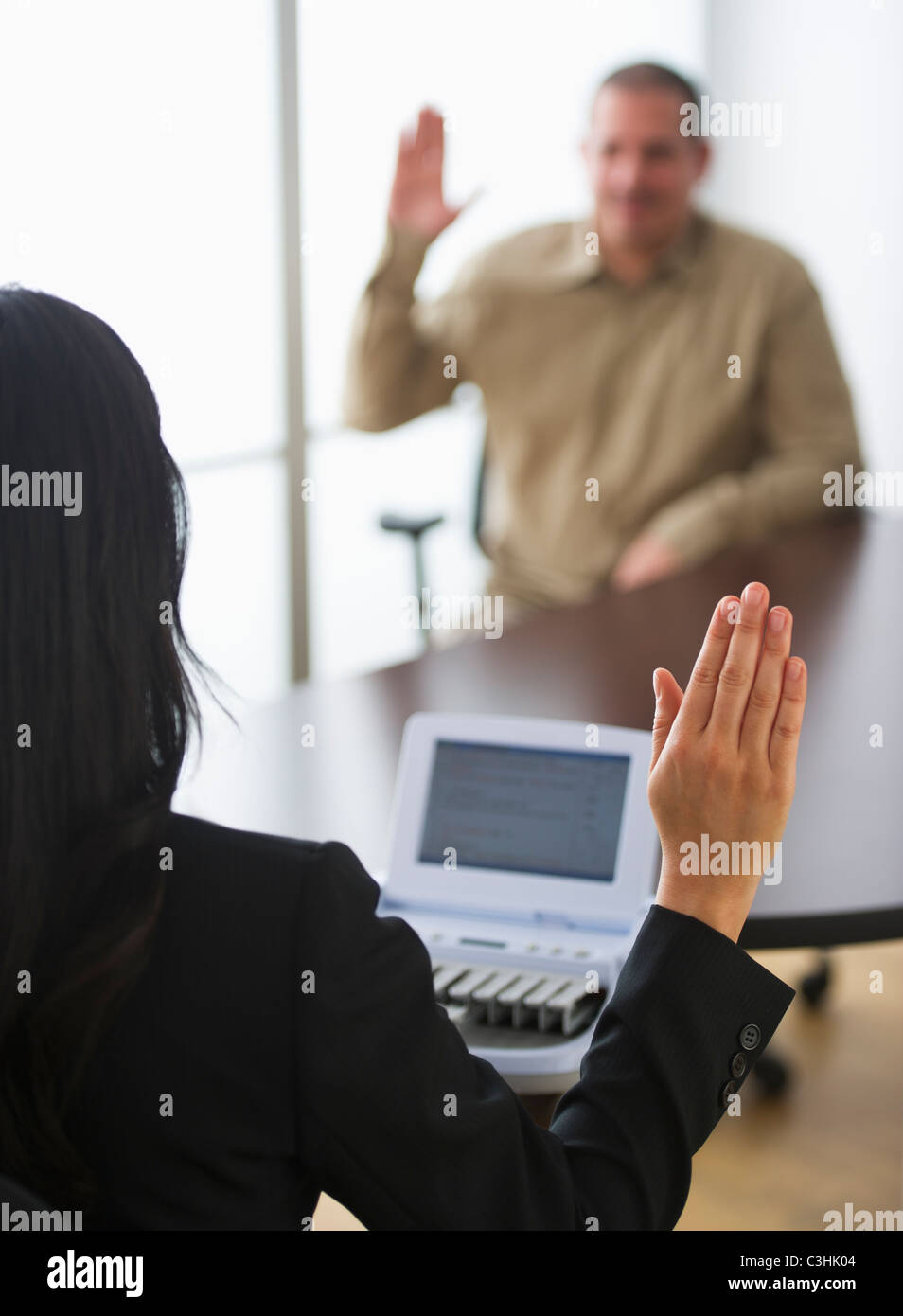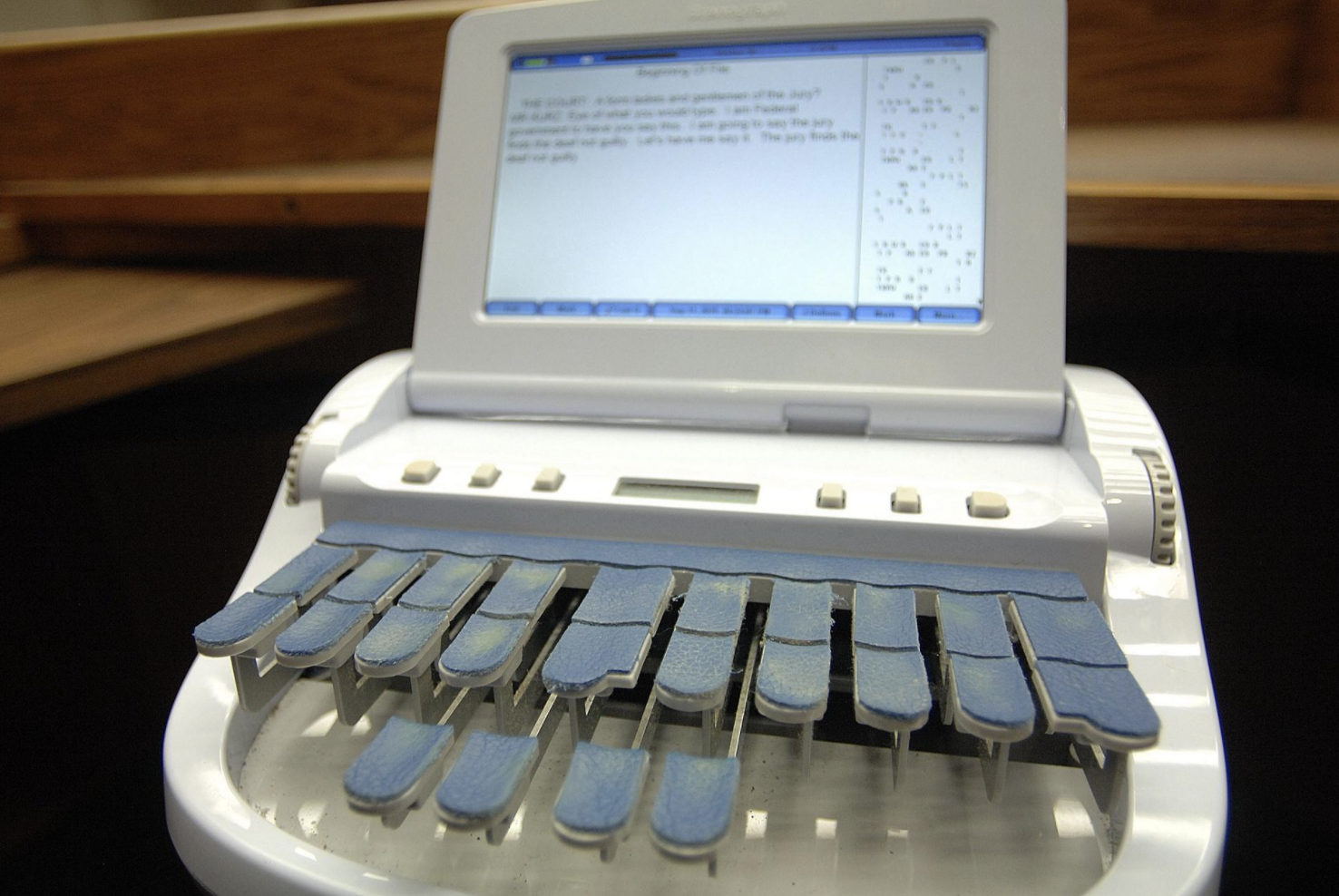Discover the Essential Abilities and Duties of a Court Typist in Today's Legal Landscape
As a court typist, you hold a crucial setting in the lawful system. Your skills exceed just typing; they entail understanding complex legal terms and treatments while making certain accuracy in every document. You collaborate carefully with attorneys and judges, making your duty essential for efficient interaction. Yet what specific abilities do you require, and how can you adjust to the ever-evolving technological landscape? Let's discover this better.
The Role of a Court Typist in the Judicial System
As the foundation of the judicial system, a court typist plays an important role in guaranteeing that lawful proceedings are properly documented. You're responsible for recording whatever from witness statements to courts' judgments, catching every information with accuracy. Your job assists maintain a clear and irreversible document of court tasks, which is vital for future recommendation and appeals.In the courtroom, you're frequently the unrecognized hero, silently ensuring that all spoken words become composed records. You maintain privacy, recognizing the delicate nature of lawful matters. You also team up closely with legal representatives, clerks, and courts to guarantee the smooth circulation of information. By working effectively under pressure, you add to the general effectiveness of the judicial procedure. Your focus to information and dedication to precision not only support the integrity of the court however also sustain the wider quest of justice in society.
Crucial Abilities Required for Court Typists
Court typists need an one-of-a-kind mix of skills to master their important role within the judicial system. You should have outstanding keying skills, often achieving speeds of 70 words per minute or even more. Precision is important; also a small mistake can cause significant misconceptions in lawful papers. You'll likewise require strong focus to information, making certain every word is recorded correctly.Additionally, great organizational skills are vital for managing numerous situations and files efficiently. Being tech-savvy is vital, as you'll make use of different software programs for word processing and paper monitoring. Solid communication skills aid you interact with judges, lawyers, and various other court personnel effectively.Lastly, a feeling of professionalism and trust and privacy is a must, as you'll handle delicate info daily. By refining these abilities, you'll be well-prepared to add substantially to the court atmosphere.
Understanding Lawful Terms and Treatments
As a court typist, you require to grasp crucial legal terms and procedures to perform your task effectively. Recognizing these principles not only assists you record precisely yet also ensures you can comply with the flow of court proceedings. Let's explore the important legal vocabulary and a review of court procedures you must recognize.

Key Legal Terms
Understanding vital legal terms is vital for any individual operating in a courtroom setting. You'll regularly encounter terms like "complainant," which refers to the individual initiating a suit, and "offender," that replies to the accusations. Recognizing the difference between "civil" and "criminal" situations aids you comprehend the context of the process. Experience with "subpoena" assurances you comprehend the lawful records engaging witnesses to affirm. Additionally, terms like "proof" and "statement" are important, as they associate directly to the info provided in court. Mastering these terms not only boosts your performance as a court typist yet also assures that you contribute to the accuracy and clarity of legal papers. Your function rests on exact terminology, so do not take it gently!
Court Procedures Summary
Experience with vital legal terms sets the stage for realizing court treatments. Recognizing how a court room functions is critical for any kind of court typist. You'll encounter procedures like accusations, where defendants hear fees, and movements, which are ask for a court ruling. Familiarize on your own with the roles of courts, clerks, and lawyers, as each plays an essential part in procedures. Recognizing the flow of a test-- from court choice to closing arguments-- helps you accurately catch the proceedings - court typist. Additionally, understanding the significance of keeping a exact and objective record can't be overemphasized. By grasping these aspects, you'll boost your performance in documenting important court activities and add significantly to the lawful procedure. Your duty is crucial in preserving the honesty of court records
The Influence of Technology on Court Typing
Technology's transformed court typing in considerable means. With electronic transcription devices, you can enhance performance and accuracy, making your task easier than ever. And also, remote court procedures have actually transformed how you approach your job, needing versatility to new styles and innovations.
Digital Transcription Devices
As digital transcription tools proceed to develop, they're transforming the means court typists execute their obligations. These tools simplify the transcription process, enabling you to catch talked words accurately and efficiently. With voice recognition software, you can record real-time proceedings, minimizing manual input and minimizing errors.Moreover, cloud-based systems allow simple accessibility to documents, so you can function collaboratively with legal teams and ensure every person's on the exact same page. Automated format attributes save you time on repetitive jobs, allowing you concentrate on web content quality.Additionally, digital devices boost protection, protecting sensitive information via encrypted storage space and controlled accessibility. By embracing these innovations, you can boost your performance and maintain the high criteria called for in the legal area.
Remote Court Procedures
The rise of remote court proceedings has actually substantially transformed the landscape for court typists. You now depend on innovation to catch and record real-time hearings from your office or home. Experience with video conferencing platforms is crucial, as you'll need to browse them perfectly to guarantee a precise document. You'll also need to manage audio quality, as background noise or connection problems can interrupt your job. Furthermore, remote process demand quick reasoning; you might need to make clear declarations or request repeats in real-time. Staying arranged and effective is vital, as due dates remain tight. Accepting i thought about this these technical advancements not just improves your abilities but also assures you remain a vital property in today's developing legal atmosphere.
Precision and Interest to Detail in Transcription
Accuracy and interest to detail are crucial in transcription, particularly for court typists. court typist. When you're transcribing legal process, every word counts. A solitary mistake can alter the definition of a statement, potentially impacting the result of a case. You must listen carefully, assuring that you capture every subtlety and inflection in the speaker's voice.Your capability to catch typos and grammatical mistakes is crucial. You don't just kind; you verify that the final paper is an accurate representation of what was said in court. This needs an eager eye and a complete understanding of legal terminology.Moreover, you'll need to be aware of different accents and talking designs, as court rooms can organize a variety of audio speakers. By refining your precision and focus to detail, you'll preserve the stability of lawful documents and add noticeably to the judicial procedure. Your diligence in this field really makes a difference

Time Monitoring and Organizational Skills
While taking care of numerous jobs, reliable time monitoring and business skills are essential for court typists. You'll typically juggle different deadlines, from transcribing court proceedings to preparing lawful records. Prioritizing your work is important; identify urgent tasks and tackle them initially to ensure prompt submissions.Organizational abilities come right into play when you're arranging via case data, notes, and transcripts. Maintaining every little thing neatly classified not only saves time however also decreases the threat of mistake. Using tools like schedules, order of business, or specialized software can aid you stay on track and manage your time effectively.Moreover, setting specific objectives for each work session can improve your performance. Break bigger tasks right into smaller sized tasks to make them more workable. By refining these abilities, you'll not only improve your efficiency yet also contribute substantially to the smooth operation of the lawful process, guaranteeing every little thing runs like clockwork.
Proceeding Education and Expert Growth Opportunities
Investing in your abilities doesn't stop with Going Here time monitoring and company. As a court typist, you'll locate that proceeding education and professional advancement are vital to remaining affordable in the lawful field. Seek workshops or online courses concentrating on sophisticated inputting strategies, lawful terminology, and transcription software application. These can hone your skills and help you adjust to the most recent technologies.Networking is similarly essential. Join professional companies like the National Court Reporters Organization (NCRA) or neighborhood legal organizations. They usually supply sources, training sessions, and conferences that can enhance your knowledge and attach you with peers.Don' t neglect about certification programs that can increase your reputation and marketability. Remaining updated with the most up to date patterns and ideal methods in legal paperwork will enhance your effectiveness and accuracy, making you a vital possession to any type of lawful group. Buy your growth, and you'll gain the benefits throughout your profession.
Often Asked Inquiries
What Is the Typical Income Range for a Court Typist?
A court typist's common wage arrays from $30,000 to $55,000 every year, depending on experience and location. You might also discover possibilities for growth with extra skills, bring about increased pay in the legal area.

Are Court Typists Required to Have a Legal Degree?
Court typists don't require a lawful degree, but having one can be beneficial. You'll commonly discover that solid inputting abilities and expertise of lawful terminology are extra vital for success in this function.
What Are the Work Hours for a Court Typist?

How Do Court Typists Make Certain Privacy in Their Work?
You assure confidentiality by securely handling sensitive papers, using encrypted software program, and complying with rigorous protocols. You remain knowledgeable about privacy regulations and only share information with accredited workers, keeping rely on the judicial procedure.
Can Court Typists Work From Another Location or Freelance?
Yes, you can work remotely or freelance as a court typist, particularly if you have trustworthy modern technology and a safe atmosphere. Several lawful experts currently welcome remote job, supplying versatility and possibilities for independent typists. As the foundation of the judicial system, a court typist plays an important duty in guaranteeing that lawful process are accurately recorded. As a court typist, you these details require to realize essential legal terms and procedures to execute your job efficiently. Understanding these terms not only enhances your effectiveness as a court typist but likewise ensures that you add to the accuracy and clarity of legal records. The surge of remote court procedures has considerably altered the landscape for court typists. As a court typist, you'll find that continuing education and specialist growth are essential to remaining affordable in the lawful area.
Comments on “A Day in the Life of a Professional Court Typist”